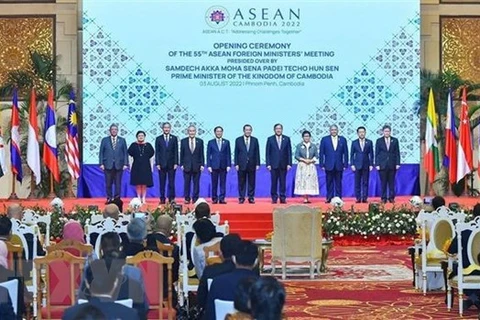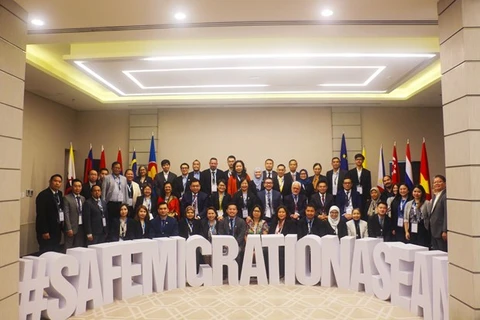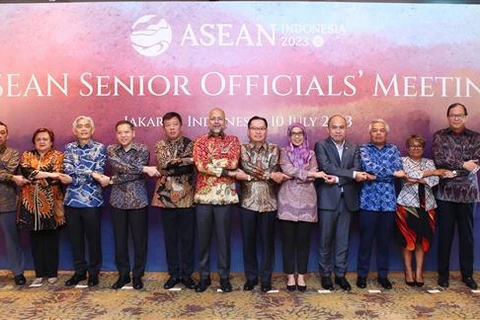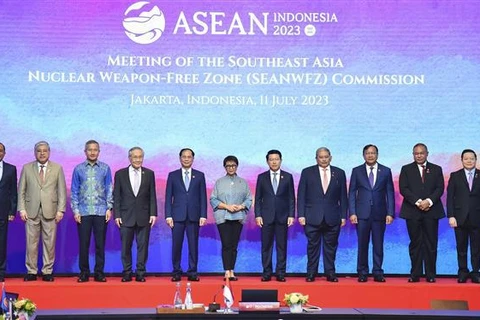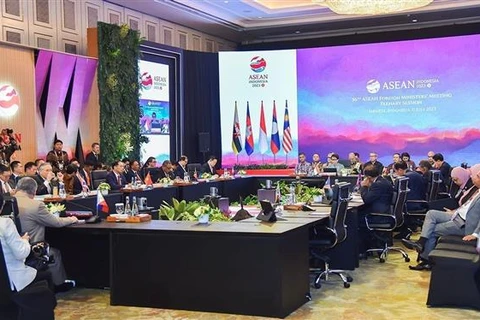Jakarta (VNA) – The Indonesian Ministry of Foreign Affairs held an ASEAN dialogue policy on the Treaty of Amity and Cooperation in Southeast Asia (TAC) at the headquarters of the ASEAN Secretariat in Jakarta on July 10.
The event attracted representatives of research institutes of ASEAN countries, along with policy experts from China and India.
In a pre-recorded speech delivered at the dialogue, Indonesian Foreign Minister Retno Marsudi stressed that TAC is an important foundation for maintaining peace, security, and stability in the region, adding it is a legally-binding code for inter-state relations in Southeast Asia.
Participants shared the view that TAC has a critical role to play in the settlement of current geopolitical challenges. Though the treaty was adopted in the Cold War period, its principles are still relevant to contemporary geopolitical tensions and competition.
Yayan G.H. Mulyana, head of the foreign policy strategy agency (BSKLN) of the Indonesian Foreign Ministry, underscored the importance of assessing opportunities and impacts of the universalisation of TAC, which is attracting the participation of 50 countries in different regions.
He considered the policy dialogue as the first step to create a forum for makers of strategic policies from ASEAN members and partners.
Meanwhile, Sidharto Suryodipuro, Director General for ASEAN Cooperation at the Indonesian Foreign Ministry, hoped that ASEAN policy dialogues will not only discuss but also give recommendations to policymakers in the region./.
The event attracted representatives of research institutes of ASEAN countries, along with policy experts from China and India.
In a pre-recorded speech delivered at the dialogue, Indonesian Foreign Minister Retno Marsudi stressed that TAC is an important foundation for maintaining peace, security, and stability in the region, adding it is a legally-binding code for inter-state relations in Southeast Asia.
Participants shared the view that TAC has a critical role to play in the settlement of current geopolitical challenges. Though the treaty was adopted in the Cold War period, its principles are still relevant to contemporary geopolitical tensions and competition.
Yayan G.H. Mulyana, head of the foreign policy strategy agency (BSKLN) of the Indonesian Foreign Ministry, underscored the importance of assessing opportunities and impacts of the universalisation of TAC, which is attracting the participation of 50 countries in different regions.
He considered the policy dialogue as the first step to create a forum for makers of strategic policies from ASEAN members and partners.
Meanwhile, Sidharto Suryodipuro, Director General for ASEAN Cooperation at the Indonesian Foreign Ministry, hoped that ASEAN policy dialogues will not only discuss but also give recommendations to policymakers in the region./.
VNA

